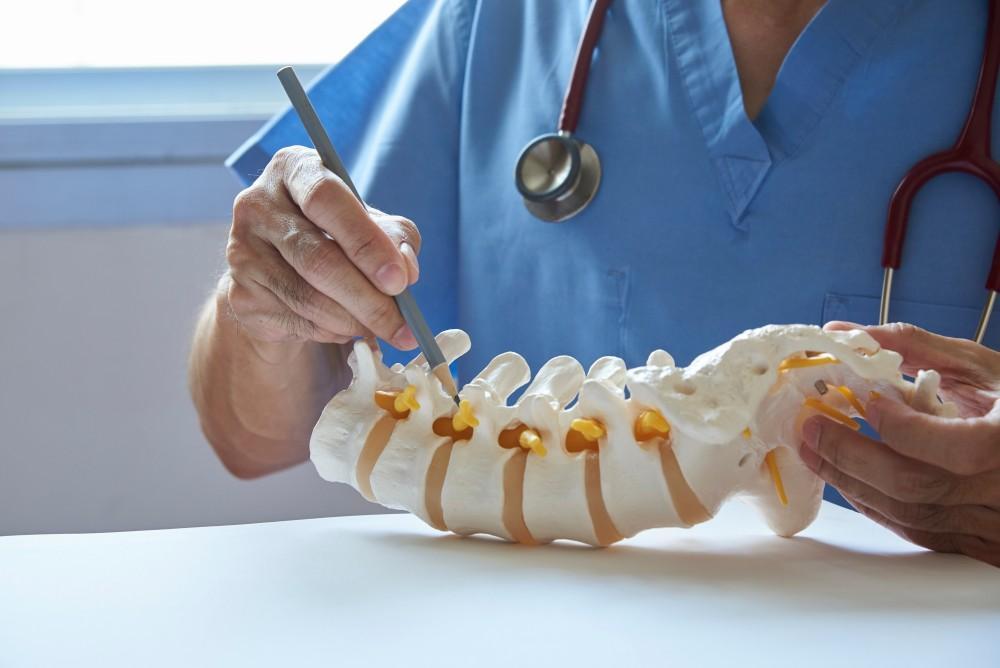
How to Alleviate Chronic Back Pain Without Surgery

Back pain can range from a dull ache to debilitating discomfort that interferes with everyday activities. Whether it’s walking, bending, or even sitting, chronic back pain can take the joy out of life. Our team at Vertrae®, understands how disruptive back pain can be, and we are here to provide solutions.
Back pain is the second most common reason people seek medical care, with nearly 2% of the U.S. workforce affected daily. The good news? About 80%-90% of people who experience back pain can improve their quality of life with the right care—and surgery is often not required.
At Vertrae®, our philosophy focuses on personalized, patient-centered care. We offer conservative, non-surgical treatments for back pain, making surgery a last resort only when necessary. By taking this approach, we help patients recover faster with less risk.
If you’re ready to reclaim your life from back pain, here’s what you need to know:
What is back pain?
Back pain can be categorized in several ways:
1. Location:
- Cervical pain: Pain in the neck areas
- Thoracic Pain: Pain in the upper back and chest area
- Lumbar Pain: Pain in the lower back, the most common type due to the heavy range of motion and load on this region.
2. Type of pain:
- Aching: Often chronic and dull
- Sharp, stabbing pain: Typically acute, related to injuries
- Radiating Pain: Pain that travels down the legs or arms, often due to nerve compression
3. Duration:
-
- Acute pain: Sudden onset, usually short-term and linked to injury
- Chronic pain: Lasts more than three to six months and requires long-term management
Common causes of back pain include:
- Spondylolisthesis (one vertebra slips with respect to the adjacent one, causing radiating pain)
- Degenerative Disc Disease
- Radiculopathy (pain radiates along the nerve)
- Sacroiliac joint dysfunction
- Spinal stenosis (narrowing of the spinal canal)
- Trauma/injury
- Tumor
Getting an accurate diagnosis is essential so you can receive the most effective treatment.
How to alleviate chronic back pain without surgery
At Vertrae®, we offer a holistic approach to treating back pain. From personalized physical therapy to pain management, here’s how you can manage your back pain without surgery:
Physical therapy
Physical therapy is often the first line of treatment for back pain. Our highly trained physical therapists work closely with Dr. Kamal Woods to tailor exercise programs specific to your condition. By mastering therapeutic stretches and exercises, many patients regain strength and mobility, allowing them to manage their pain from home.
Physical therapy is essential not only for recovery but also for maintaining a healthy spine as you age.
Key benefits of physical therapy:
- Strengthening the muscles that support your spine
- Improving flexibility and mobility
- Learning proper posture and movement techniques to prevent further injury
Medications
Nonsteroidal anti-inflammatory drugs (NSAIDs), such as ibuprofen, naproxen, and aspirin, can effectively reduce inflammation and provide temporary relief from acute or chronic flare-ups.
Over-the-counter anti-inflammatories, though, should only be used on a short-term basis — take as little as you can for as short a period as you can. They can severely affect your GI tract, including tissue ulceration.
While they’re helpful for relieving inflammation, NSAIDs are not effective for all back conditions. Prescription muscle relaxers are more helpful for spasms, spasticity, and musculoskeletal pain.
Transcutaneous electrical nerve stimulation (TENS)
TENS therapy can help relieve back pain, especially due to muscle spasms. The device sends an electrical current to electrodes strategically placed on your back in the areas that register pain.
Many patients at Vertrae® find TENS therapy helpful, and we offer access to this technology during physical therapy sessions. Some patients may also benefit from a home-use TENS unit for ongoing relief.
Some insurance plans will cover the cost of a personal TENS unit, or, if they don’t, the units are cheap enough that you can easily purchase one for at-home use.
The Vertrae® Difference
With access to advanced conservative treatments and expert care from Dr. Kamal Woods, your back pain doesn’t have to control your life.
At Vertrae®, we provide comprehensive, personalized care, helping you avoid surgery. When surgery becomes necessary, we offer minimally invasive and robotic-assisted outpatient surgery.
If you’re ready to explore your options, schedule an evaluation today by calling 844-255-2225.
You Might Also Enjoy...


5 Common Signs of a Compression Fracture

Using Your Own Platelet-Rich Plasma to Alleviate Your Back Pain

A Closer Look at Your Sacroiliac Joint

4 Benefits of Outpatient Spine Surgery

